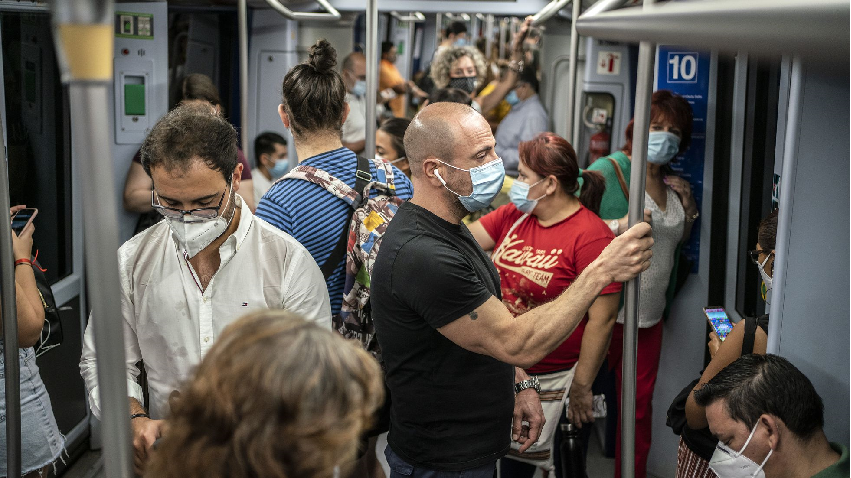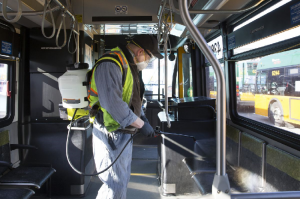
Due to the state of alarm, the authorities have limited the mobility of citizens. But, if we are forced to use public transport, how should we act?
#Stayhome has become one of the most powerful viral campaigns to make the entire population aware of the need to stay in their homes and thus prevent the spread of the coronavirus. However, not all people can stay in their homes during these weeks. Their jobs or access to essential public services force them to go outside. In addition to those who take the car to go. For example, to work, many citizens have to use public transport to cover these trips allowed in the state of alarm. What measures must be taken to protect oneself and prevent contagion?
Use Public Transport Only If It Is Essential
How do we minimize the risk of contagion if we have to take any public transport? The first thing is to use common sense: avoid unnecessary travel. This translates, for example, into not getting on a bus to go to a supermarket far from home and doing the basic necessities in the area closest to our home. And if possible, walk. In this way, we not only protect ourselves (and others) from the coronavirus. But we will also be leaving public transport free for those who really have no other option to move.
Also, keep in mind that although the influx of travelers has decreased considerably after the declaration of the state of alarm. Any minor incident that affects the regularity of the service provided by public transport (buses, metro, commuter trains and average distances, ferries. ..) can cause crowds during your wait or on the trip. This, before the health alert, caused travelers discomfort. But now, when it comes to taking extreme precautions and respecting a minimum distance from the neighbor, it causes a lot of nervousness among users.
So You Should Travel

The hygiene rules to use public transport and avoid the spread of the coronavirus can be applied to most of the areas in which we live. We review the fundamental precepts:
- Maintain a safe distance of between one and two meters from the rest of the passengers. Both at the entrances and on the platform, and inside the transport. Do not share the elevator with other people.
- If you cough or sneeze, do so into your bent elbow.
- Use disposable tissues and throw them away after use.
- Avoid coming into contact with all kinds of surfaces: stair railings, grab bars, seats, armrests, door controls… You can wear disposable gloves, but remember not to reuse them.
- Do not touch your eyes, nose, and mouth, as hands facilitate the transmission of the coronavirus.
- Do not eat or drink when using public transport.
- Wash your hands very often, preferably with soap and water; you can also use alcoholic solutions.
- And, of course, if you have any symptoms compatible with the coronavirus (fever, cough, or shortness of breath are the most common), do not leave the house and, therefore, do not use public transport.
According to the Ministry of Health, the use of masks is not recommended for the general healthy population. They only help prevent the transmission of the virus if they are worn by people who are sick.
Can They Suspend Public Transport?
Large cities, in principle, are not modifying schedules or frequencies (down) of public transport over which they have competition. Even so, they can do so, since the autonomous communities and municipalities have recognized this capacity. As stated in the royal decree approved by the Government where the state of alarm was declared: “The minister and the competent regional or local authorities may establish a percentage of reduction of services if the health situation so advises or other specific conditions for the provision of the same.
In any case, in the adoption of these measures “the need to guarantee that citizens can access their jobs and basic services if necessary” will be taken into account. Therefore, public transport services cannot be unilaterally suspended without fulfilling this condition. In addition, the local authorities must inform the autonomous communities. If they apply a percentage of reduction and the latter, for their part, to the Ministry of Transport, Mobility, and Urban Agenda.
The royal decree also establishes that the operators of the passenger transport service, both public and private, are obliged to carry out daily cleaning of the vehicles. Try to reduce the risk of contagion as much as possible. Always follow the recommendations set by the Ministry of Health.
You may also be interested in Types Of Transport: Air, Sea, And Land
